-
Call Us
(+91) 8274830152 / 7003309520
-
Email Us
info@roysquare.com
Call Us
(+91) 8274830152 / 7003309520
Email Us
info@roysquare.com
|
1
|
All legal Statutory & Regulatory Requirements can be streamlined by actual fulfilment of there individual requirements. |
|
2
|
Standardization of all Managerial & Medical departmental processes. |
|
3
|
Standardization of patient care services according to National & International Norms |
|
4
|
Continuous Quality improvement in all Operational Process |
|
5
|
Less chances of having Medico Legal issues |
|
6
|
Enhancement in Occupational Health & Safety |
|
7
|
Minimizing of Hospital induced infection by improving Infection Control practices |
|
8
|
Enhancement of patient, staff & visitors safety by implementing Emergency Control practices |
|
9
|
Continuous improvement in patient Care Services |
|
10
|
Empanelment under major Govt. & Corporate Companies |
|
11
|
Branding |
NABH is responsible for the accreditation of healthcare organizations in India, including hospitals, clinics, and
other healthcare providers. The accreditation process involves an assessment of the healthcare organization's compliance
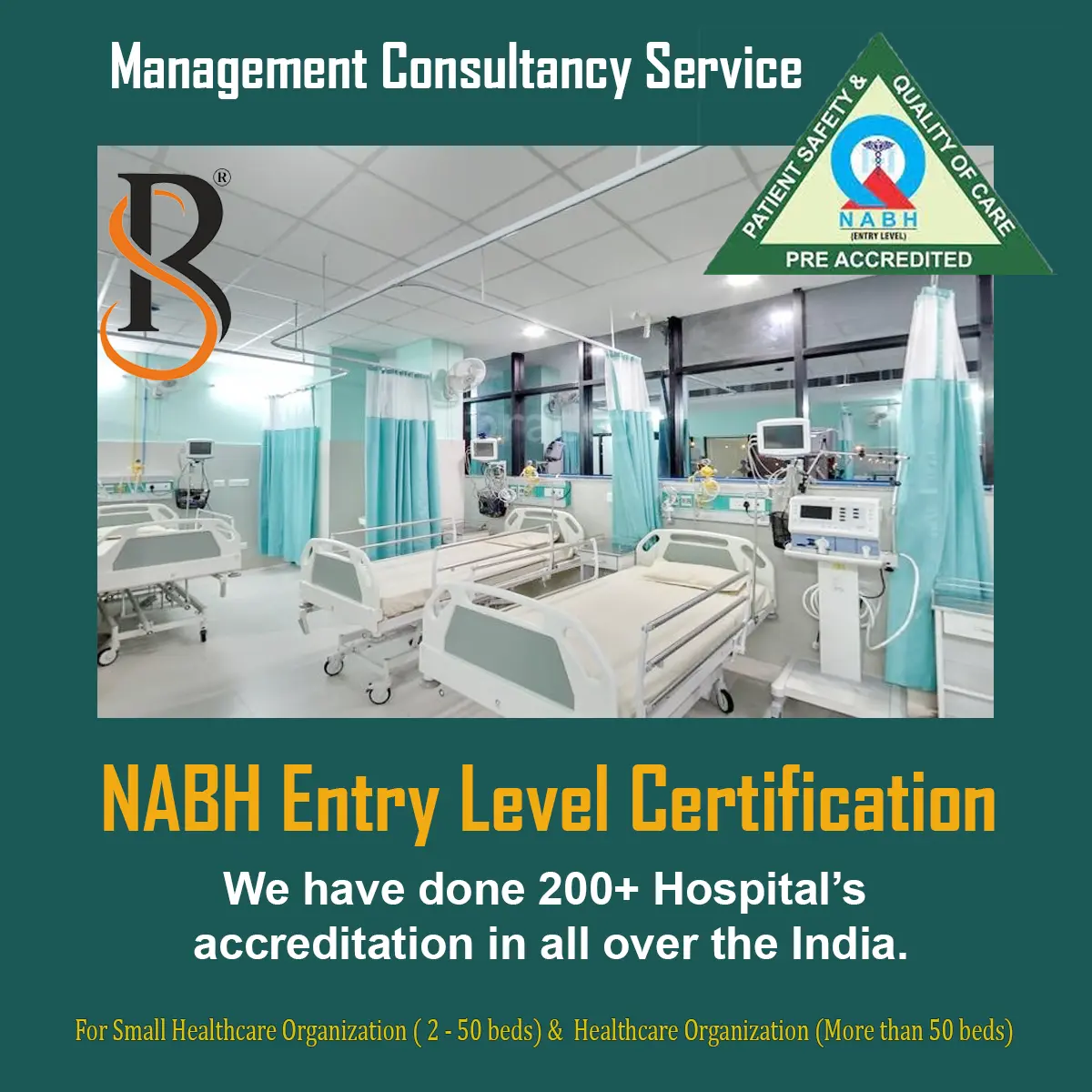 with a set of predefined standards related to patient safety, quality of care, and management processes. The standards
cover areas such as clinical care, infection control, medication management, patient rights, and information management.
with a set of predefined standards related to patient safety, quality of care, and management processes. The standards
cover areas such as clinical care, infection control, medication management, patient rights, and information management.
Management Cons The accreditation process is voluntary, but it is becoming increasingly important for healthcare organizations to obtain NABH accreditation as it is seen as a mark of quality and credibility. NABH accreditation is recognized by many insurance companies and other third-party payers, who may offer preferential rates to accredited organizations. It is also often a requirement for government contracts and tenders.ull NABH Accreditation; NABL Accreditation; QCI Recommendation , BIS Recommendation for RO Plant.
Overall, NABH accreditation is intended to improve the quality of healthcare in India by promoting a culture of quality and patient safety in healthcare organizations.
Full NABH accreditation refers to the highest level of accreditation that a healthcare organization can achieve from NABH. It signifies that the organization has met all the standards and requirements set by NABH for quality healthcare services.
To achieve full NABH accreditation, a healthcare organization must undergo a rigorous evaluation process that includes
a self-assessment, a pre-assessment, and a final assessment by a team of NABH assessors. The organization must
demonstrate compliance with the
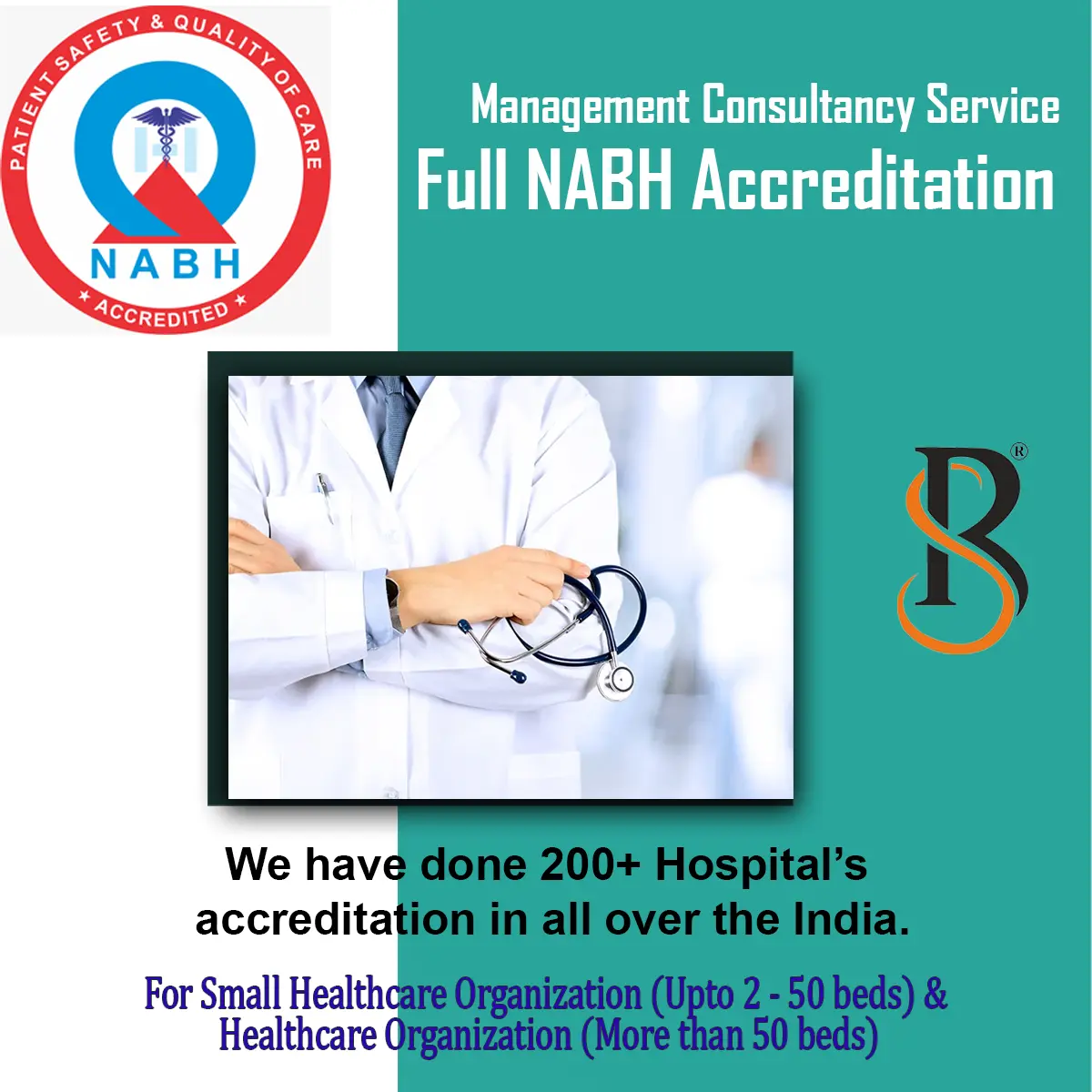 NABH standards in areas such as patient safety, clinical care, infection control,
medical equipment management , and human resource management.
NABH standards in areas such as patient safety, clinical care, infection control,
medical equipment management , and human resource management.
The NABH accreditation process is voluntary, but it is highly respected in the healthcare industry and is considered a mark of excellence in patient care. Full NABH accreditation is valid for three years, after which the organization must undergo a renewal assessment to maintain its accreditation status.
Healthcare organizations that achieve full NABH accreditation demonstrate a commitment to providing high-quality healthcare services that meet international standards. Patients can have greater confidence in the quality and safety of the healthcare services they receive from an organization that has achieved full NABH accreditation.
We are one of the Best NABH Consultant to provide most efficient services to achieve NABH Accreditation for Hospitals. We have served more than 100 Hospitals for NABH Accreditation in all over India specially in Maharashtra (Akola, Yavatmal, Beed, Nagpur, Amravati, Washim, Aurangabad); West Bengal (Kolkata, Howrah, Hooghly, Bardhaman, Bolpur, Siliguri, Asansol, Krishnanagar); Jharkhand (Bokaro Steel City, Dhanbad, Ranchi) & Chhattisgarh (Raipur, Mahasamund, Ambikapur).
Roy Square Enterprise also give Consultancy to Laboratories to achieve the NABL Accreditation. NABL stands for National Accreditation Board for Testing and Calibration Laboratories. It is an autonomous body under the Department of Science and Technology of the Indian government. NABL provides accreditation for testing and calibration laboratories, medical testing laboratories, proficiency testing providers, and reference material producers in India and abroad. NABL accreditation is a formal recognition of the technical competence of a laboratory to perform specific tests or calibrations as per ISO/IEC 17025:2017.
(i) Testing Laboratory Accreditation: This type of accreditation is given to laboratories that conduct testing of products or materials in various fields such as chemical, biological, mechanical, electrical, and electronics. Testing laboratory accreditation covers specific tests or types of tests that are conducted by the laboratory.
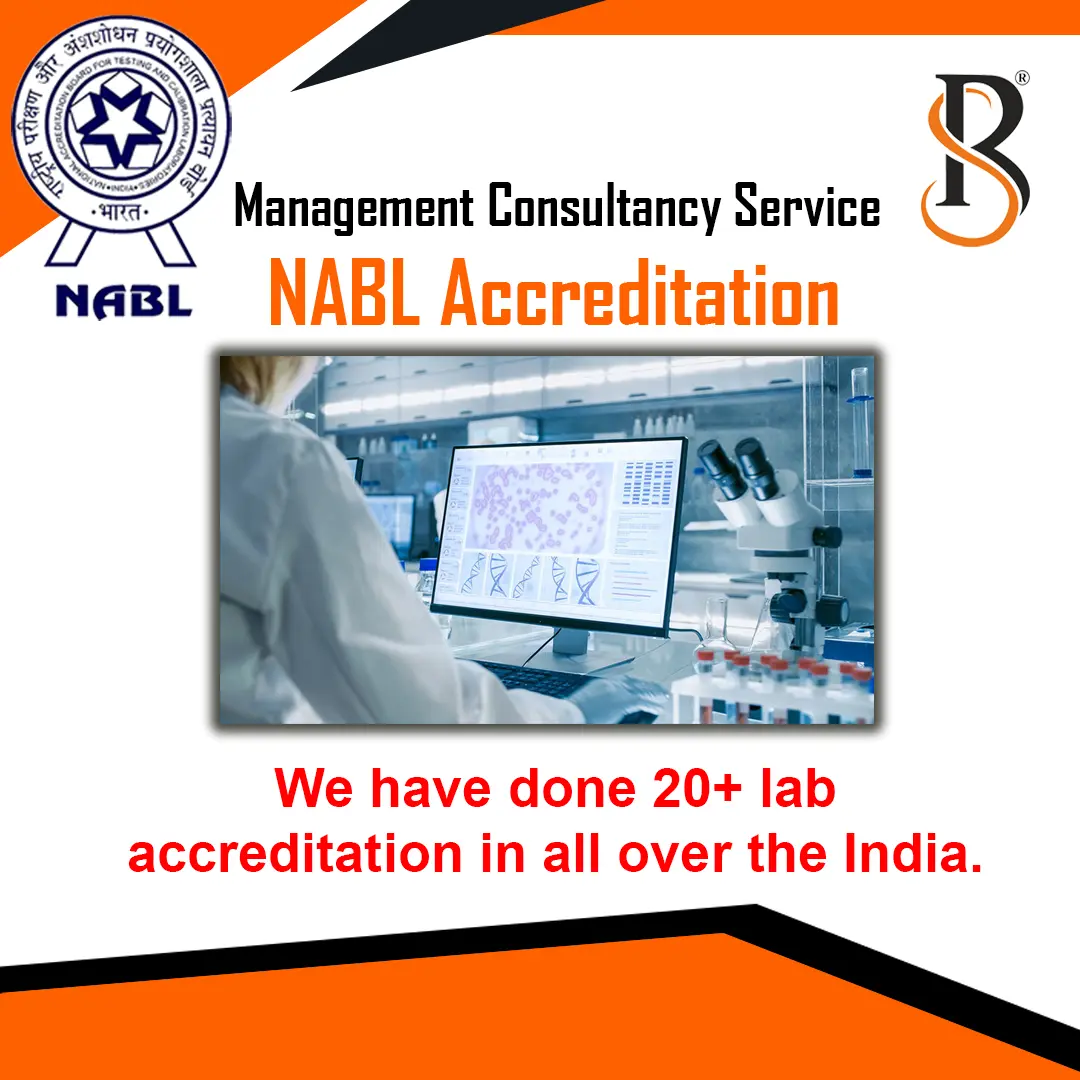
(ii) Calibration Laboratory Accreditation: This type of accreditation is given to laboratories that perform calibration of equipment or instruments used in various fields such as chemical, biological, mechanical, electrical, and electronics. Calibration laboratory accreditation covers specific types of instruments or equipment that are calibrated by the laboratory.
In addition to these types of accreditation, NABL also provides accreditation for Medical Laboratories, Proficiency Testing Providers, and Reference Material Producers. These accreditations are specific to their respective fields and are designed to ensure that the laboratories meet the highest standards of quality and accuracy in their testing and calibration activities.
We offer NABL consultancy to help testing and calibration laboratories obtain NABL accreditation. Our consultancy services typically include gap analysis, documentation support, internal audits, training, and assistance in the implementation of quality management systems. Our consultants help laboratories to understand the accreditation process, prepare for assessments, and meet the requirements of NABL. RSE also provide guidance on how to maintain the accreditation status and continuously improve the laboratory's performance. Our consultancy services are particularly useful for laboratories that are new to the accreditation process or those that require additional support to comply with NABL's standards. We have provided NABL consultancy to more than 15 labs in India (including clinical & industrial laboratory).
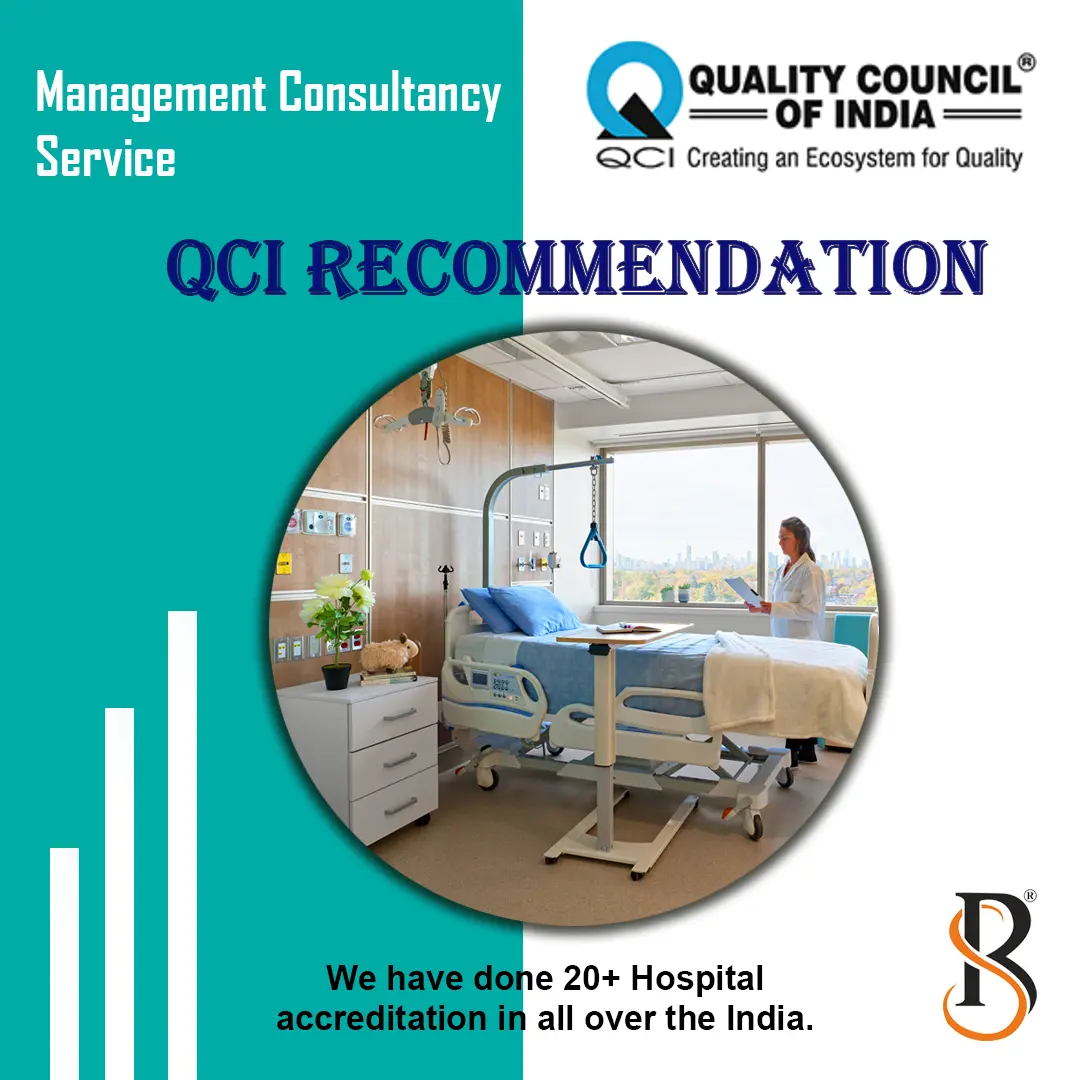
QCI stands for Quality Council of India, which is an autonomous body established by the Indian government to promote and improve the quality of goods and services in various industries. QCI provides accreditation for various programs, including NABL, NABH, and NABET, and recommends best practices for quality management systems.
QCI's recommendations have helped to raise awareness about the importance of quality in India and have encouraged organizations to adopt best practices for quality management. The government and various industries have also taken steps to implement QCI's recommendations, which have led to improvements in the quality of goods and services in India.
Recently, it is mandatory to take QCI Recommendation for ECHS & CGHS Empanelment. We give Consultancy for QCI Recommendation to empanelled with ECHS & CGHS. We have catered more than 10 Hospitals in different states of India like West Bengal, Jharkhand, Maharashtra, to receive the QCI Recommendation.

ISO for International Organization for Standardization. It is a non-governmental organization that develops and publishes international standards for various industries.
The headquarters of ISO is in Geneva, Switzerland. ISO was established in 1947 and has since developed over 23,000 standards covering almost all aspects of technology and business. Some of the most popular standards developed by ISO include ISO 9001 (Quality management), ISO 14001 (environmental management), ISO 27001 (information security management), and ISO 45001 (occupational health and safety management).
These standards provide guidance and best practices for organizations to improve their processes, products, and services. ISO standards are voluntary, but many organizations choose to implement them to enhance their credibility, efficiency, and effectiveness. We help to get International Recognized ISO certificate for your business, like ISO 9001, ISO 14001, ISO 45001, ISO 22000 & so on...
ISO 9001 is an international standard that sets out the requirements for a Quality Management System (QMS). The
standard is designed to help organizations ensure that they consistently provide products and services that meet
customer and regulatory requirements. ISO 9001 was first published in 1987, and it has since been revised several
times. The most recent version, ISO 9001:2015, was published in September 2015. The standard is based on a set of
quality management principles, including a focus on customer satisfaction,
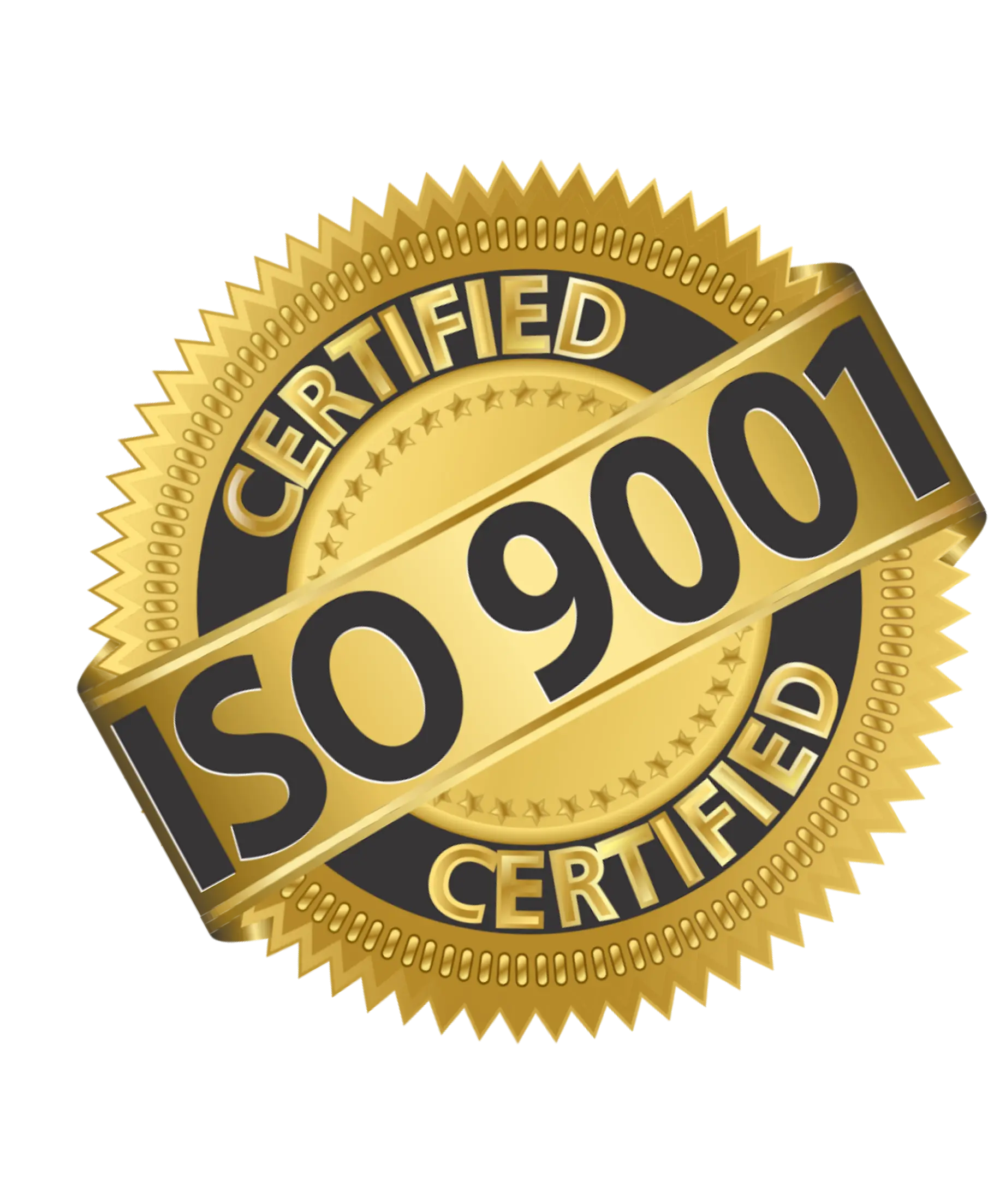 leadership, involvement of people, process
approach, continuous improvement, evidence-based decision making, and relationship
management. To become certified to
ISO 9001, an organization must implement a QMS that meets the requirements of the standard and undergo a
certification audit by an accredited certification body. The certification audit includes a review of the
organization's QMS documentation, as well as an assessment of the organization's processes and procedures to ensure
they are in compliance with the standard. ISO 9001 certification is widely recognized as a benchmark for quality
management, and many organizations seek certification as a way to demonstrate their commitment to quality and to
improve their processes and operations.
leadership, involvement of people, process
approach, continuous improvement, evidence-based decision making, and relationship
management. To become certified to
ISO 9001, an organization must implement a QMS that meets the requirements of the standard and undergo a
certification audit by an accredited certification body. The certification audit includes a review of the
organization's QMS documentation, as well as an assessment of the organization's processes and procedures to ensure
they are in compliance with the standard. ISO 9001 certification is widely recognized as a benchmark for quality
management, and many organizations seek certification as a way to demonstrate their commitment to quality and to
improve their processes and operations.
ISO 14001 is a globally recognized standard for Environmental Management Systems (EMS) was published in 2015.
It is designed to help organizations establish, implement, maintain, and continually improve their EMS, with the
aim of enhancing their environmental performance and minimizing their environmental impact.
The ISO 14001 standard provides a framework for organizations to identify and control their environmental impact,
comply with applicable legal and regulatory requirements, and continually improve their environmental
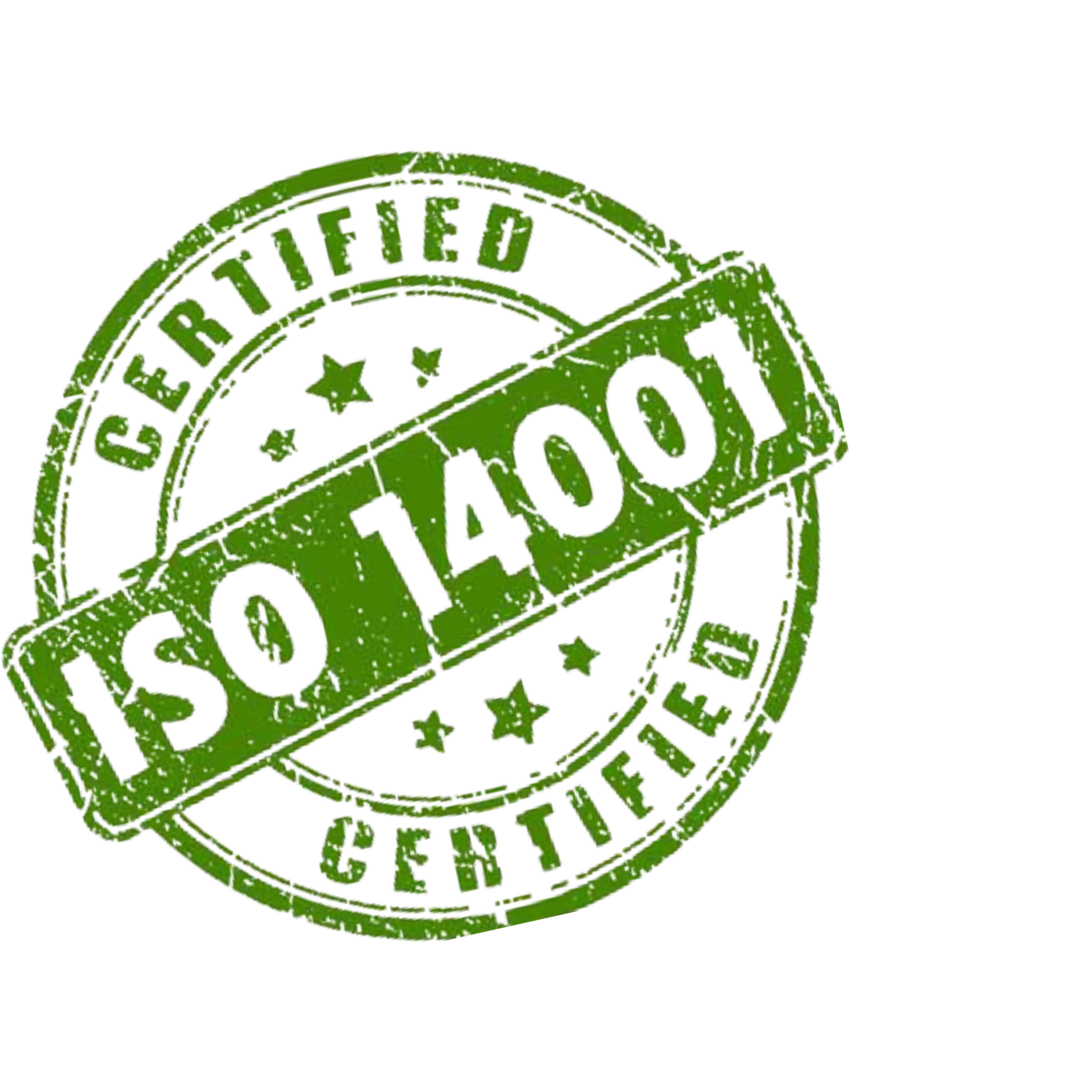 performance.
The standard requires organizations to establish an environmental policy, set environmental objectives and
targets, implement operational controls, and monitor and measure their environmental performance.
ISO 14001 can be applied to organizations of all types and sizes, including public and private sector
organizations, manufacturing and service industries, and government agencies. It is intended to be flexible and
adaptable to the specific needs and circumstances of each organization.
ISO 14001 is part of the ISO 14000 series of environmental management standards, which also includes standards
for environmental performance evaluation, life cycle assessment, environmental labeling, and environmental
communication.
performance.
The standard requires organizations to establish an environmental policy, set environmental objectives and
targets, implement operational controls, and monitor and measure their environmental performance.
ISO 14001 can be applied to organizations of all types and sizes, including public and private sector
organizations, manufacturing and service industries, and government agencies. It is intended to be flexible and
adaptable to the specific needs and circumstances of each organization.
ISO 14001 is part of the ISO 14000 series of environmental management standards, which also includes standards
for environmental performance evaluation, life cycle assessment, environmental labeling, and environmental
communication.
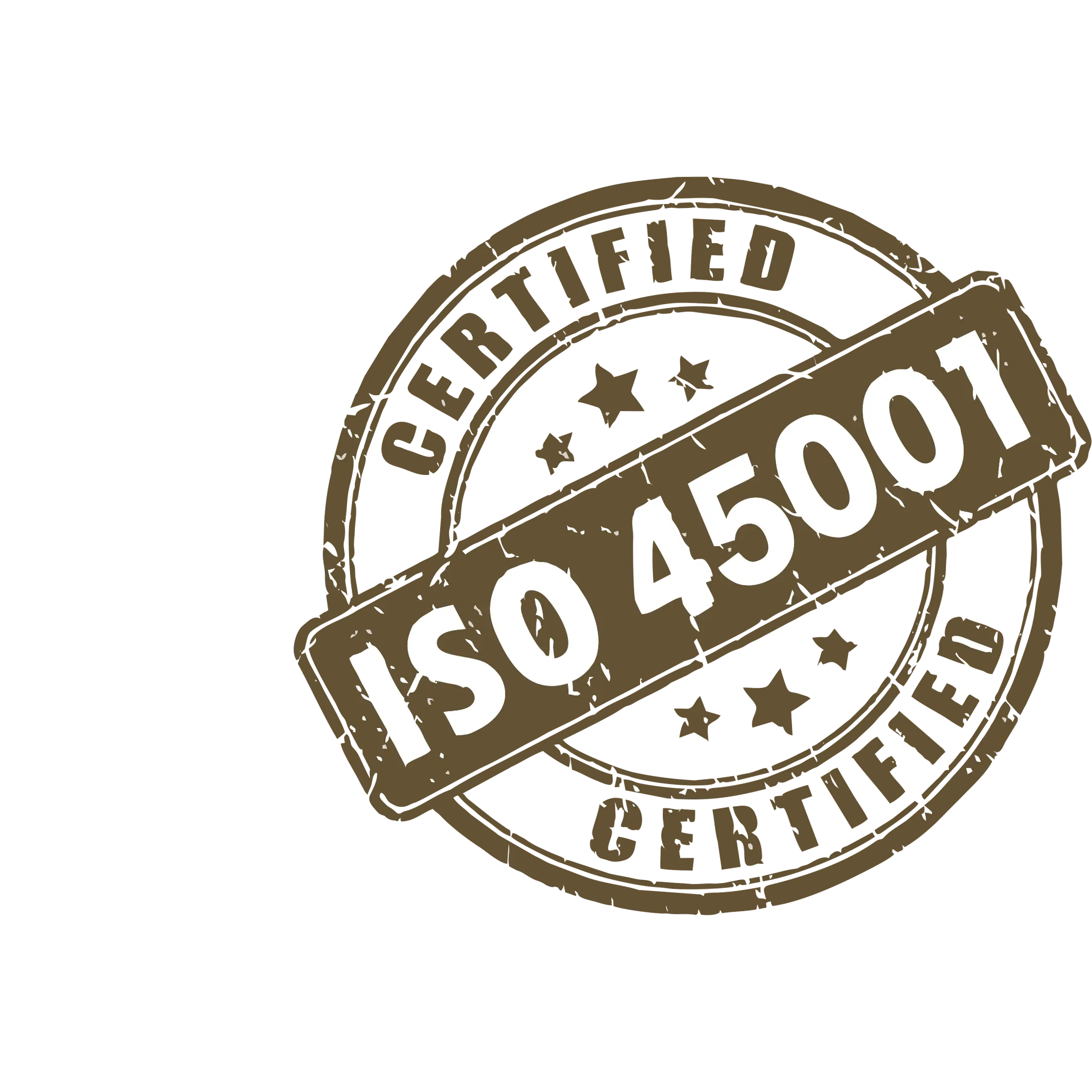 It is intended to help organizations integrate their OHSMS into their overall business processes and management systems.
ISO 45001 requires organizations to establish an OHSMS policy, identify and assess OHS risks and opportunities,
implement controls to manage those risks and opportunities, and continually monitor and improve their OHS
performance. The standard also emphasizes the importance of worker participation and consultation in the development
and implementation of the OHSMS. ISO 45001 can be applied to organizations of all sizes and types, including public
and private sector organizations, manufacturing and service industries, and government agencies. It is intended to be
flexible and adaptable to the specific needs and circumstances of each organization. ISO 45001 is part of the ISO
45000 series of standards, which also includes ISO 45003 for psychological health and safety in the workplace and ISO
45005 for managing health and safety in remote work.
It is intended to help organizations integrate their OHSMS into their overall business processes and management systems.
ISO 45001 requires organizations to establish an OHSMS policy, identify and assess OHS risks and opportunities,
implement controls to manage those risks and opportunities, and continually monitor and improve their OHS
performance. The standard also emphasizes the importance of worker participation and consultation in the development
and implementation of the OHSMS. ISO 45001 can be applied to organizations of all sizes and types, including public
and private sector organizations, manufacturing and service industries, and government agencies. It is intended to be
flexible and adaptable to the specific needs and circumstances of each organization. ISO 45001 is part of the ISO
45000 series of standards, which also includes ISO 45003 for psychological health and safety in the workplace and ISO
45005 for managing health and safety in remote work.
 their overall business processes and management systems. ISO 22000 requires organizations to identify and assess food
safety hazards, implement controls to manage those hazards, and continually monitor and improve their food safety
performance. The standard also emphasizes the importance of communication and cooperation throughout the food supply
chain.ISO 22000 can be applied to organizations of all sizes and types, including those involved in the production,
processing, storage, and distribution of food products. It is intended to be flexible and adaptable to the specific
needs and circumstances of each organization. ISO 22000 is part of the ISO 22000 series of food safety management
standards, which also includes ISO 22002 for prerequisite programs for food safety and ISO/TS 22003 for food safety
management system certification
their overall business processes and management systems. ISO 22000 requires organizations to identify and assess food
safety hazards, implement controls to manage those hazards, and continually monitor and improve their food safety
performance. The standard also emphasizes the importance of communication and cooperation throughout the food supply
chain.ISO 22000 can be applied to organizations of all sizes and types, including those involved in the production,
processing, storage, and distribution of food products. It is intended to be flexible and adaptable to the specific
needs and circumstances of each organization. ISO 22000 is part of the ISO 22000 series of food safety management
standards, which also includes ISO 22002 for prerequisite programs for food safety and ISO/TS 22003 for food safety
management system certification
Our Consultancy for BIS (Bureau of Indian Standards) Recommendation for RO (Reverse Osmosis) Plant involves providing guidance and assistance to organizations that wish to manufacture, install or operate RO plants in accordance with BIS standards.
BIS is a national body responsible for the development and maintenance of standards for various products, including RO plants. The BIS standards for RO plants cover various aspects such as the quality of the water produced, the performance of the plant, the safety of the equipment, and the environmental impact of the plant.
Our consultancy for BIS Recommendation for RO Plant can help organizations understand the BIS standards for RO plants and provide guidance on how to comply with these standards.
|
1
|
Conducting the gap analysis to identify areas where the organization needs to improve to meet BIS standards. |
|
2
|
Developing a quality management system for RO plants in line with BIS requirements. |
|
3
|
Providing technical support to ensure that the RO plant meets the performance and safety requirements of BIS standards. |
|
4
|
Assisting in preparing documentation and records required for BIS accreditation. |
|
5
|
Conducting internal audits and training programs to ensure that the organization maintains compliance with BIS standards. |
Overall, our consultancy for BIS Recommendation for RO Plant can help organizations to achieve compliance with BIS standards for RO plants, which can improve the quality and safety of the water produced by the plant and enhance the organization's reputation for quality and reliability.











